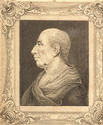 The Reformation's impact on Glasgow was far-reaching and unpredictable. Despite strong educational emphasis in the First Book of Discipline (1560), the upheaval caused the university's near collapse. This halted for two decades the reformers' aim of an educated ministry. The university's records ceased abruptly in 1558 and teaching was almost abandoned. In 1563, Queen Mary, noting that provision for bursars and masters had "ceissit" (ceased), awarded emergency funds from property belonging to the Black Friars.
The Reformation's impact on Glasgow was far-reaching and unpredictable. Despite strong educational emphasis in the First Book of Discipline (1560), the upheaval caused the university's near collapse. This halted for two decades the reformers' aim of an educated ministry. The university's records ceased abruptly in 1558 and teaching was almost abandoned. In 1563, Queen Mary, noting that provision for bursars and masters had "ceissit" (ceased), awarded emergency funds from property belonging to the Black Friars.
 The burgh council offered more in 1572, attracting from Geneva the celebrated scholar and reformer, Andrew Melville (1542–1622), who in 1574 became the university's principal. From 1577 he reconstructed the arts faculty along advanced humanist lines (Nova Erectio), bringing "things nochd hard of in this countrey befor". Glasgow was now in the vanguard of an intellectual revolution and scholars flocked to the city. Soon overflowing classrooms "war nocht able to receave them".
The burgh council offered more in 1572, attracting from Geneva the celebrated scholar and reformer, Andrew Melville (1542–1622), who in 1574 became the university's principal. From 1577 he reconstructed the arts faculty along advanced humanist lines (Nova Erectio), bringing "things nochd hard of in this countrey befor". Glasgow was now in the vanguard of an intellectual revolution and scholars flocked to the city. Soon overflowing classrooms "war nocht able to receave them".
 The secular emphasis of Melville's programme encapsulated European Renaissance influences, especially in the study of the liberal arts. "Worldly" subjects - history, geography, mathematics and astronomy paved the way for rationalist, scientific enquiry. Textual criticism, including the innovative study of Greek, stimulated original thinking by linking students directly with the classical sources. By encouraging a revisionist approach to scholarship, existing power structures came under scrutiny. This resulted in a radicalised clergy and a tradition of hyper-Calvinism in the city, which was expressed in the strength of Glasgow's Covenanting movement during the 17th century. The democratic tradition of Presbyterian church government also owed much to Melville's legacy.
The secular emphasis of Melville's programme encapsulated European Renaissance influences, especially in the study of the liberal arts. "Worldly" subjects - history, geography, mathematics and astronomy paved the way for rationalist, scientific enquiry. Textual criticism, including the innovative study of Greek, stimulated original thinking by linking students directly with the classical sources. By encouraging a revisionist approach to scholarship, existing power structures came under scrutiny. This resulted in a radicalised clergy and a tradition of hyper-Calvinism in the city, which was expressed in the strength of Glasgow's Covenanting movement during the 17th century. The democratic tradition of Presbyterian church government also owed much to Melville's legacy.
 Scotland's universities adopted the Melvillian approach to humanities' teaching, but science too flourished under his influence. Covenanters held a lively interest in practical, secular subjects. George Sinclair (d. 1699) regent (1654–1666) and professor of Mathematics and Experimental Philosophy (1691–1696) pioneered research into hydrostatics (1672). Glasgow student, and regent (1641), the celebrated legal genius, James Dalrymple, Viscount Stair (1619–1695) systematised Scots law in his Institutions of the Law of Scotland (1681).
Scotland's universities adopted the Melvillian approach to humanities' teaching, but science too flourished under his influence. Covenanters held a lively interest in practical, secular subjects. George Sinclair (d. 1699) regent (1654–1666) and professor of Mathematics and Experimental Philosophy (1691–1696) pioneered research into hydrostatics (1672). Glasgow student, and regent (1641), the celebrated legal genius, James Dalrymple, Viscount Stair (1619–1695) systematised Scots law in his Institutions of the Law of Scotland (1681).
 The "marriage" of ethics and science fused two key interests of the reformers. A new field emerged: "moral philosophy" with its 18th century adjunct, "political economy". The brilliance of the first professors, Gershom Carmichael (1672-1729), Francis Hutcheson (1694-1746), Adam Smith (1723-1789) and Thomas Reid (1710-1796), brought critical acclaim to the city. The Enlightenment, the radical tradition, and the growth of science at Glasgow, were three diverse outcomes of the Reformation.
The "marriage" of ethics and science fused two key interests of the reformers. A new field emerged: "moral philosophy" with its 18th century adjunct, "political economy". The brilliance of the first professors, Gershom Carmichael (1672-1729), Francis Hutcheson (1694-1746), Adam Smith (1723-1789) and Thomas Reid (1710-1796), brought critical acclaim to the city. The Enlightenment, the radical tradition, and the growth of science at Glasgow, were three diverse outcomes of the Reformation.